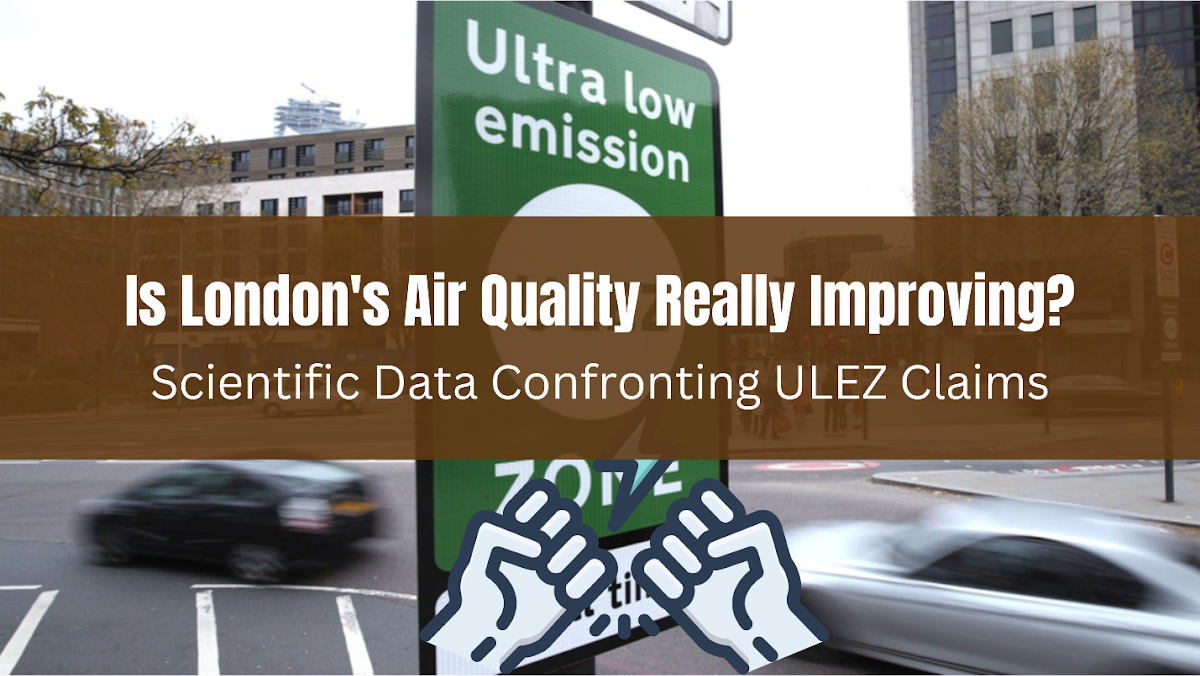The hoopla generated by the introduction of the Ultra Low Emission Zone (ULEZ) in London is yet to die down. Since its introduction in 2019, the scheme has been a subject of both commendation and controversy.
Designed to combat air pollution and its devastating health impacts, ULEZ was hailed as a game-changer by some but has faced criticism from others. However, a recent scientific report has sparked a new row over this ambitious initiaive.
What is ULEZ and how does it relate to air pollution?
Before delving into the recent scientific findings, it is crucial to understand the gravity of the issue. Air pollution in the UK is estimated to be responsible for as many as 36,000 premature deaths annually.
However, attributing these deaths directly to air pollution on death certificates is challenging, as it typically exacerbates existing health conditions like heart disease, stroke, and chronic obstructive pulmonary disease (COPD).
Originally set to take effect in Central London in September 2020, the ULEZ aimed to build upon the Low Emission Zone (LEZ) introduced by Ken Livingstone in 2008, to control pollution.
The ULEZ was first announced by Boris Johnson in 2014 during his tenure as the Conservative Mayor of London. The plan was confirmed in March 2015 and had the support of the then-Prime Minister, David Cameron.
The Controversy
Recent research conducted by a team of scientists at Imperial College London has raised eyebrows and ignited controversy. The study, spanning 12 weeks before and after the ULEZ’s launch in April 2019, reported a 3% reduction in nitroxide levels over that period. The findings also said levels of ozone, known to damage the lungs, and tiny, harmful particles known as PM2.5, showed ‘insignificant’ reductions. Another alarm bell by the study is that at some locations across the capital, air pollution actually increased despite the ULEZ being in effect. These findings have led some to question the ULEZ’s effectiveness, with critics calling it a “money-grabbing” scheme.
Furthermore, Mayor Sadiq Khan has been accused by the leader of City Hall Conservatives of attempting to suppress the research that challenged the benefits of the ULEZ, according to a BBC report. Accusations specifically revolve around Deputy Mayor Shirley Rodrigues’ alleged involvement in trying to counter the research by Imperial College. These allegations suggest an attempt to suppress findings that questioned the effectiveness of the ULEZ.
Implications for ULEZ
The allegations of suppressing and influencing research can have serious implications for the credibility of the ULEZ policy and, more broadly, for public trust in government. Here are some key implications:
- Erosion of public trust: Accusations of suppressing or manipulating research can significantly undermine public confidence in both the ULEZ policy and the individuals responsible for its implementation. Trust plays a pivotal role in effective governance, particularly when it involves policies geared toward enhancing public health and overall well-being.
The way in which the public perceives these allegations can have a substantial impact on attitudes toward ULEZ and environmental policies in general. Should the public believe that data is being manipulated or that research is being deliberately stifled, it may cast doubt on the sincerity of endeavours aimed at combatting air pollution
- Political fallout: Accusations of manipulation can lead to political turmoil and complex contention Those who support the policy may view the allegations as politically motivated attacks, while critics may see them as confirmation of rival stances. This can exacerbate existing political divisions and make it even more challenging to build badly needed bi-partisan consensus around environmental and climate change policies.
- Calls for transparency: The credibility of the ULEZ policy may also be at stake, leading to calls for greater accountability and transparency in the decision-making process. People may demand investigations into whether the research was influenced or suppressed and whether the policy was based on sound scientific evidence.
Going Forward
In conclusion, as London grapples with the ongoing challenge of air pollution, the effectiveness of initiatives like ULEZ remains a topic of intense debate.
The debate regarding the scientific credibility of the policy underscores the importance of vigilant monitoring of both data and the policy’s impact on the city’s air quality.
Similarly, the allegations of suppressing or influencing research carry profound implications for the credibility of environmental and climate policies. They can erode public trust, exacerbate political divisions, and cast doubt on the underlying motivations behind policy decisions. To safeguard credibility and garner public support for these policies, it is imperative that they are underpinned by transparent, impartial, and independently verified research.
Source for cover image: BBC
Found it interesting and would like more in the mail?




